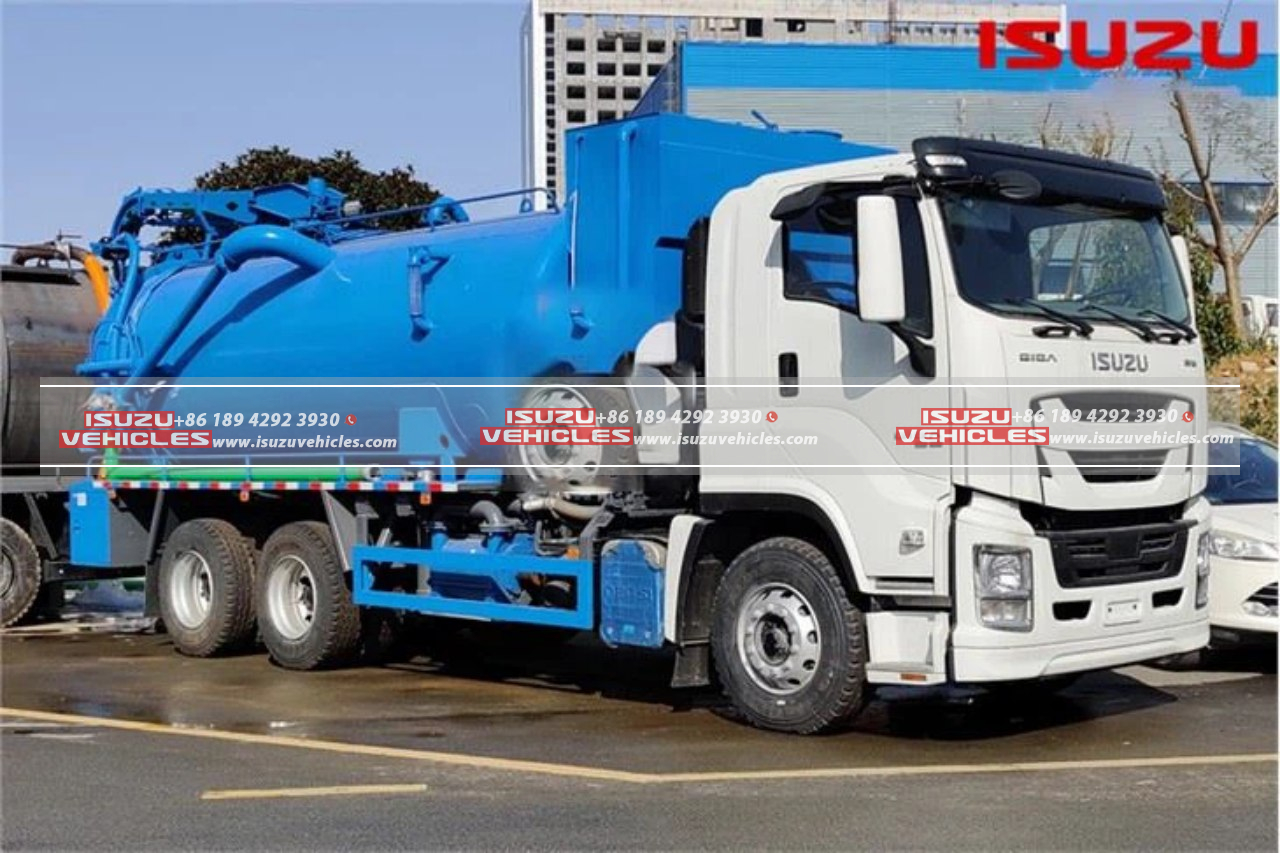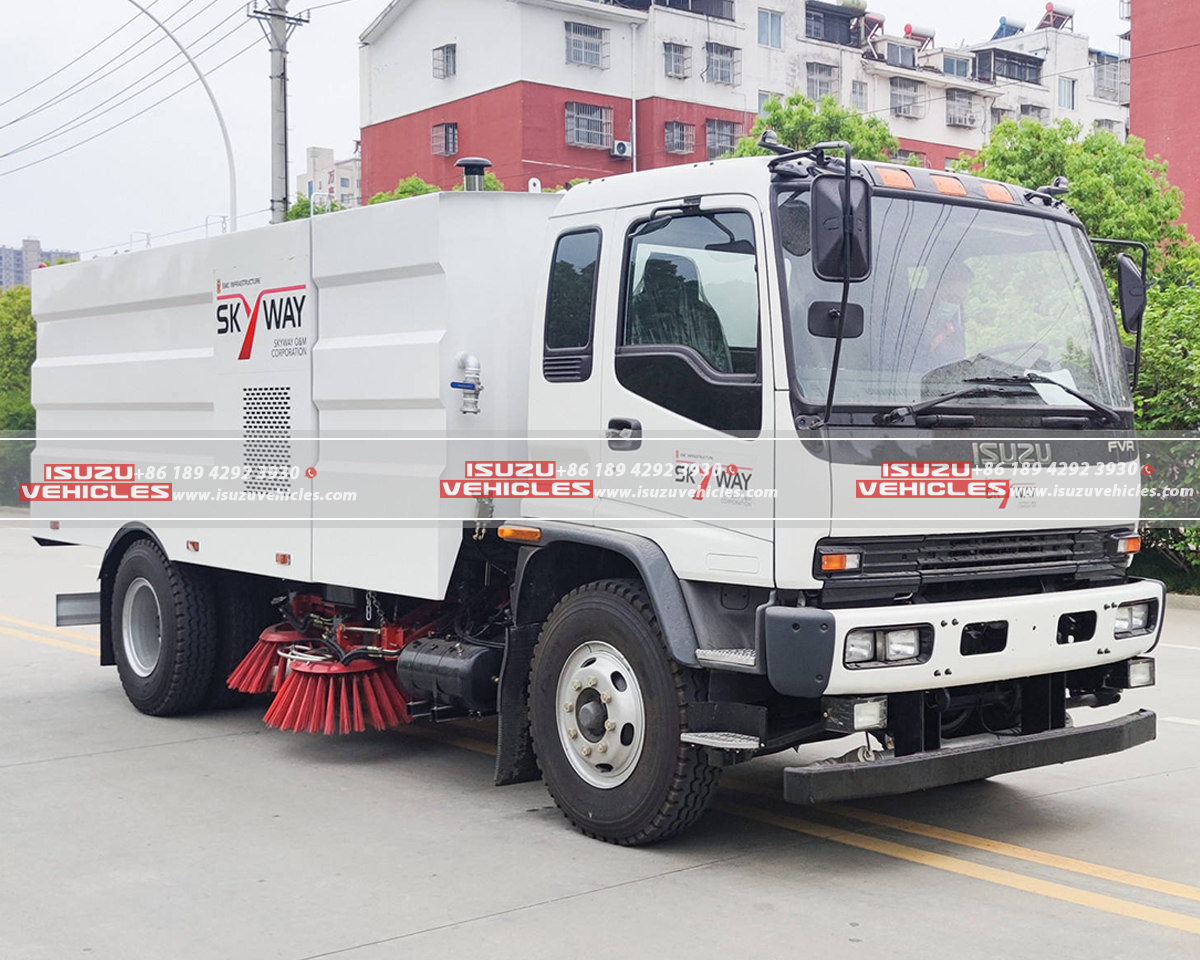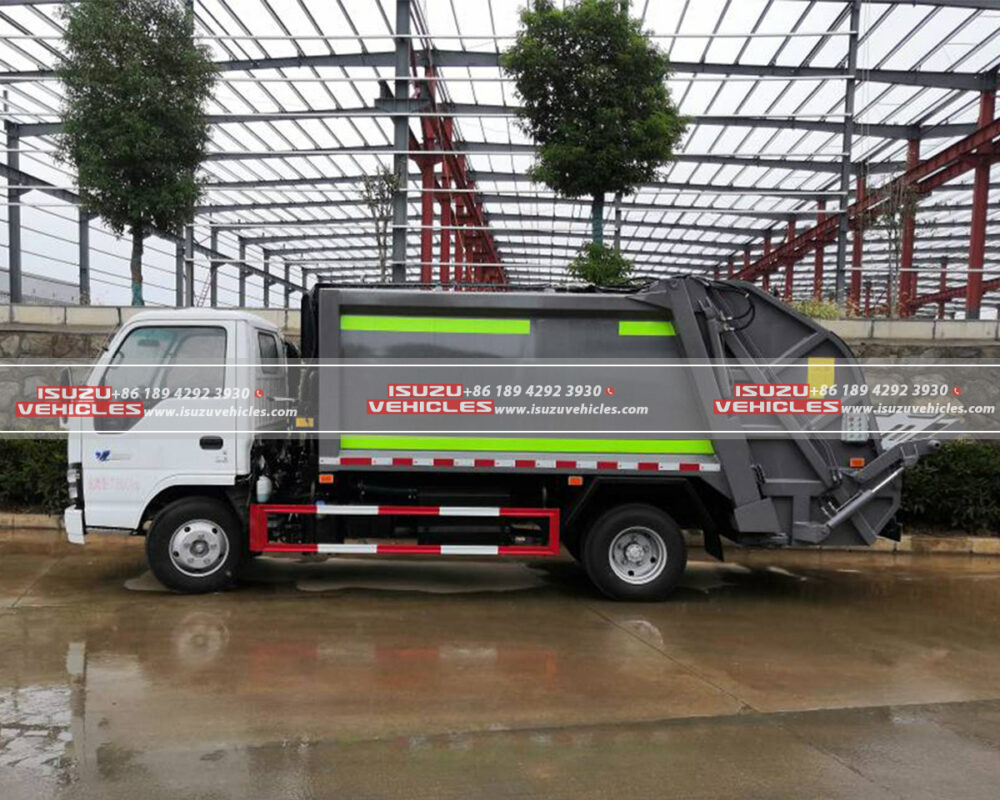As industries continue to grow and demand for logistics and transportation increases, the environmental impact of heavy-duty vehicles such as trucks becomes more significant. ISUZU vehicles are widely recognized for their durability and efficiency, but the company is also making strides toward minimizing the environmental footprint of their vehicles. From ISUZU garbage trucks used in waste management to ISUZU sewer trucks and municipal trucks serving cities, these vehicles play an integral role in urban infrastructure and daily operations. However, like all vehicles, they must evolve to meet the growing demand for eco-friendly solutions. This blog post explores the various ways ISUZU trucks contribute to environmental sustainability, focusing on cleaner emissions, fuel efficiency, and innovations in eco-friendly technologies.
Reducing Emissions: Cleaner Engines for a Cleaner Future
One of the most significant environmental concerns related to ISUZU trucks is their emissions. ISUZU has made notable strides in developing trucks with cleaner engines that meet and exceed global emissions standards. Whether it’s a municipal truck or a ISUZU garbage truck, the company has ensured that its vehicles are designed to reduce harmful emissions such as nitrogen oxides (NOx) and particulate matter (PM), which contribute to air pollution and health problems.
The introduction of ISUZU’s Euro 6-compliant engines has had a considerable impact on reducing truck emissions. These engines utilize advanced technologies such as selective catalytic reduction (SCR) and exhaust gas recirculation (EGR), both of which help lower harmful nitrogen oxide levels. These advancements are particularly important for urban areas, where trucks like ISUZU sewer trucks and ISUZU sweeper trucks often operate in densely populated regions with heavy traffic. By meeting the highest emission standards, ISUZU trucks ensure cleaner air for communities, reducing the overall environmental burden.
Key Takeaway: ISUZU’s Euro 6-compliant engines contribute to lower emissions, improving air quality in urban environments where their trucks, such as municipal trucks, frequently operate.

Fuel Efficiency: Lowering Carbon Footprints
In addition to reducing emissions, ISUZU trucks are engineered to optimize fuel consumption, which directly impacts the environmental footprint of transportation. Fuel efficiency is one of the key metrics used to assess the sustainability of any vehicle, and ISUZU has focused on developing trucks that provide better mileage while carrying heavy loads.
Trucks like the ISUZU garbage truck and ISUZU sweeper truck, which require consistent and long-distance operations, benefit greatly from these advancements. The efficiency of these vehicles is enhanced through features like turbocharged engines, automatic transmission systems, and weight-optimized chassis. Additionally, the use of lightweight materials in the construction of these trucks further reduces fuel consumption by decreasing the overall weight. As a result, ISUZU municipal trucks are able to deliver essential services while emitting fewer greenhouse gases and consuming less fuel, contributing to overall reductions in carbon emissions.
The focus on fuel efficiency doesn’t just benefit the environment—it also helps businesses save on fuel costs, making these trucks not only environmentally responsible but also economically viable.
Key Takeaway: The fuel efficiency of ISUZU trucks, including the ISUZU garbage truck and ISUZU sewer truck, reduces their carbon footprint, benefiting both the environment and operational costs.
Alternative Power Sources: ISUZU’s Move Towards Electric Trucks
As the world increasingly moves towards sustainability, ISUZU is looking to embrace alternative power sources to reduce the reliance on traditional fossil fuels. Electric vehicles (EVs) are a growing trend in the transportation industry, and ISUZU has already begun introducing electric trucks for municipal and commercial use. The shift towards electric power in trucks such as ISUZU municipal trucks and ISUZU garbage trucks could drastically reduce the environmental impact of these vehicles.
The introduction of electric ISUZU trucks is particularly promising for cities and municipalities looking to reduce their emissions and improve air quality. Electric garbage trucks, for example, would eliminate the use of diesel or gasoline altogether, significantly reducing both air and noise pollution. These trucks are powered by high-capacity lithium-ion batteries, which are much cleaner than conventional internal combustion engines. Additionally, electric trucks have zero tailpipe emissions, meaning they do not contribute to local pollution, making them an ideal solution for urban areas where pollution levels tend to be the highest.
As ISUZU continues to innovate and develop these electric solutions, there is a growing potential for the entire fleet of ISUZU trucks, including ISUZU sweeper trucks and sewer trucks, to transition towards more sustainable operations.
Key Takeaway: The transition to electric ISUZU trucks, such as electric garbage trucks, represents a major step forward in reducing reliance on fossil fuels and lowering emissions in urban areas.

Efficiency in Waste Management: Eco-friendly ISUZU Garbage Trucks
Waste management is a vital part of maintaining a clean and sustainable environment, and ISUZU garbage trucks play a crucial role in this process. These trucks are designed to efficiently collect and transport waste while minimizing their environmental impact. In many cities, where waste disposal can be a significant challenge, ISUZU trucks are equipped with advanced features that make them both effective and eco-friendly.
The incorporation of compaction technology in ISUZU garbage trucks ensures that the trucks carry more waste in fewer trips, reducing fuel consumption and emissions. Additionally, some models are equipped with hybrid powertrains, which combine the power of a conventional engine with electric motors to improve fuel efficiency and reduce pollution. In regions where ISUZU sweeper trucks are also used to keep streets clean, these trucks offer advanced filtration systems that reduce dust emissions, contributing to cleaner air in busy urban centers.
Moreover, the integration of low-emission technology in ISUZU garbage trucks helps ensure that even as these trucks complete their heavy-duty tasks, they are still compliant with the strictest environmental regulations.
Key Takeaway: ISUZU garbage trucks, with features like compaction technology and hybrid powertrains, help make waste management more efficient while reducing fuel consumption and emissions.

The Role of ISUZU Trucks in Urban Sustainability
The urban landscape is rapidly evolving, and municipalities are increasingly focused on sustainability and reducing their environmental impact. ISUZU municipal trucks, including ISUZU sweeper trucks and sewer trucks, are designed to help cities maintain cleanliness, functionality, and environmental health. These trucks provide essential services like street sweeping, waste collection, and sewer maintenance while minimizing their negative impact on the environment.
For instance, ISUZU sewer trucks are used to clean and maintain underground sewer systems, a vital function for ensuring public health and environmental protection. By using low-emission engines and fuel-efficient systems, these trucks help reduce the carbon footprint of vital sanitation services. Similarly, ISUZU sweeper trucks are crucial in maintaining urban cleanliness by cleaning streets and roadways, and they are equipped with high-efficiency filtration systems that reduce the amount of dust and particulate matter released into the air.
By focusing on fuel efficiency, low emissions, and eco-friendly technology, ISUZU trucks play a critical role in urban sustainability efforts, ensuring that cities continue to thrive while preserving the environment for future generations.
Key Takeaway: ISUZU municipal trucks, including sweeper trucks and sewer trucks, contribute significantly to urban sustainability by providing essential services with minimal environmental impact.
ISUZU trucks are integral to the efficient functioning of modern cities and industries, but they are also evolving to meet the demands of a greener future. From low-emission engines to electric vehicle initiatives, ISUZU is leading the way in reducing the environmental impact of its vehicles. Whether it’s a garbage truck, a sewer truck, or a municipal truck, each model is designed with efficiency and sustainability in mind. As the industry continues to move toward cleaner solutions, ISUZU trucks will remain at the forefront, helping businesses and cities reduce their carbon footprints while improving operational efficiency.
